Where Do We Go From Here?
There’s been a lot of talk of boycotts in the wake of Ferguson and the grand jury’s refusal to indict officer Darren Wilson for the death of Mike Brown, Rekia Boyd’s killer Officer Dante Severin who got off after a prosecutor charged him incorrectly, the death of Sandra Bland, LaQuan McDonald, schools being closed in Black communities, gentrification, persistent racial wealth inequality, the continued oppression Black people face. Oppression that has followed close on our heels ever since the first dogs hunted our ancestors and shoved them into the bottom of slave ships. Add to that the ever-growing list of names of Black people being killed or abused by police and the time feels ripe for collective action.
The idea of using our dollars as a form of protest is particularly appealing during the holiday season. Minister Louis Farrakhan’s call for #JusticeOrElse recognizes that when Black people chose to withhold our money from the economy and only support Black owned businesses…we’re collectively much better off. I addressed this in an article called The Black Folk Money Shuffle and will be returning to the concept frequently.
Hashtags like #NotOneDime, #BlackOutBlackFriday & #ShopBlack (among others) have been circulating with increasing frequency. The message is a simple one: American businesses depend on “Black Friday” to make enough money to carry them through the next year. They make more money today than any other day of the year. More importantly they depend on money from the Black community to make that happen. Meanwhile Black people are catching hell all over the damn place. All while our dollars are helping to fund the system that thrives on our oppression.
Instead of just withholding our dollars from the general economy, the idea is that we will instead choose to support Black owned businesses. We will protest the abuse we endure at the hands of this system by refusing to financially sustain the system. And we will also take steps to rebuild our community’s capacity to meet its own needs and redevelop its own economic streams.
Black people spend over a trillion dollars annually. That’s just the Black people in America. As a group we have more spending power than many countries. So if you are considering participating in the boycott then there are some things I think we need to consider.
1. Boycotts are Inconvenient. So is Racism.
For those who don’t remember the details of the bus boycotts during the civil rights era, here’s the quick version.
After slavery, Black passengers were treated like scum fifth class citizens under legal segregation. Especially when it came to public transportation. After countless incidents where Black passengers were forced to either give up their seats for White passengers, kicked off of buses all together or subjected to racial violence terrorism, the Black community began to boycott the transportation system and demanded equal treatment.
The Montgomery Boycott is one of the more famous protests. It lasted over a year and was a tremendous display of Black people really owning their monetary power. Despite the fact that Whites in Montgomery were completely unwilling to provide non-racist equal service to Black bus patrons, they very much wanted the green money that Black patrons spent on White owned bus tickets.
During the boycott, Black taxi drivers stepped up to provide increased services. People who owned cars used them to help transport community members to and from work. Black churches and institutions across the nation raised money and donated shoes to support the folks who had to walk to work. The Black community rallied to keep Black folks mobile—and financially sustained—during the boycott.
It took a lot of planning. It took effort. It took commitment. It took sacrifice. It also took the willingness to be inconvenienced.
That last one is a biggie. Boycotts can be incredibly inconvenient. It is inconvenient to not take part in the biggest sales of the year. It is inconvenient to intentionally stay home and talk to your kids about why we are doing things differently this year. It can be inconvenient to find enough Black owned businesses to get the items you need in some neighborhoods.
But you know what else is inconvenient?
Racism. Police brutality. Explaining to your kids that the world sees them as menacing adults incapable of being innocent children. The risk of being killed for walking, talking, breathing or being Black. So when you get irritated with the inconvenience of participating in a boycott remember why it is that we’re having this discussion in the first place.
2. Planning & Executing Plans are Luxuries that Slaves Did Not Often Have.
During and after slavery White people employed rules that limited the number of Black people who could associate together in a group. There were rules against too many Black people congregating in churches, on streets corners or engaging in lengthy meetings without a White person present.
That White person’s role was to serve as a monitor for the conversation.
Because if too many Black people got to stand around and talk for too long without supervision they could plan something. And planning inevitably lead to revolts. Revolts were bloody and messy and more importantly, they interrupted the flow of profits.
There are reasons enslaved Africans had to use Negro Spirituals as code language. We could not speak freely. We could not communicate freely, uninterrupted and with deliberation.
And when every method of your communication is monitored by people who stake their economic future on keeping you oppressed, then you miss out. Big time. Enslaved Africans were not afforded the luxury of planning. They could not freely implement their plans, discuss their plans with others, succeed and/or fail at their plans, and learn collectively from the planning process.
What did that mean practically speaking?
Well, while we were sneaking into the woods in the dead of night under the threat of death to learn how to read, the rest of the country was learning how to come together and create new towns in the middle of open plains. They were learning how to plan their own schools, build their own stores and transportation systems. While we could be whipped to death for speaking out of turn, everyone else was learning how to control and direct the streams of money and investment in their communities; they were learning how to set up governments and businesses that work to further their own interests. They were learning how to defend themselves as a unit.
While they were learning how to build and sustain community we were forced to whisper in secret.
Even when against all odds we did create our own self sustaining towns we were bombed from the air by White neighbors motivated by racial hatred.
Let’s think about how that history may impact us today. As I’ve said before we are all historical products. Who we are today is the result of the choices made in the past.
So often we complain that we “cain’t neva get our ish together.” Phrases like “n-words cain’t neva make ish happen” or “n-words cain’t neva work together and do nuthin’” and similarly derogatory terms speak to our normalization of the notion that we are inherently unable to properly execute things—like plans.
I would suggest that the descendants of those who were not allowed the luxury of working together in our own best interests for several hundred years should think about that when we try to come together today.
Especially when we react to incidents of racial hatred. Like the murder of Mike Brown. Like Ferguson.
So it is important for us to build in organizational capacity because collectively we may lag behind in the art and science of planning and organizing for the purpose of building community.
Let us be sure to use this time in the aftermath of Ferguson to expand our knowledge of the how-to of community organizing. The organizers in Ferguson have been methodical in taking classes and learning the science of sustaining a movement. We need to follow that example.
It takes more than just passion to organize something beyond a protest march. It takes more than just passion to sustain a movement and to build a healthy community. There are books on how to organize. There are classes one can take on how to organize. There are elders one can speak with who can teach us effective organizing strategies. Lets use these resources to our advantage.
3. Slaves Were Not Allowed to Own.
One of the lessons we can learn from the Birmingham bus boycott is that it is more important to build our own than it is to protest for the right to force someone who hates us to take our money.
The bus boycott was a remarkable demonstration of collective power. However, in the pivotal moments after the boycott’s successful end, the Black community returned to riding buses operated by racist bus company owners.
That was a missed opportunity.
What if instead of giving racist bus owners their transportation dollars going back to business as usual, Black patrons decided to keep their money circulating in their own community? What if during the boycott, the Black community created and maintained its own bus companies, met its own transportation needs and circulated those dollars within its own borders?
What if instead of celebrating the fact that racist bus owners could no longer openly discriminate, the Black community rejoiced—and then decided it neither needed nor wanted to spend its money with those companies? What if instead, those boycotters chose to take their hard earned money and give it to Black owned bus companies that respected them and their humanity?
Yes it is appropriate for us to boycott businesses that align with value systems that don’t value us.
But it is more important that we learn how to meet our own needs for the long term. I am interested in owning our own communities and being able to meet our own needs. I am not interested in forcing people who literally despise the air that I breathe to take my money and service me in their restaurant.
Because in the words of Michael Jackson, they don’t really care about us.
As a system, white supremacy easily watches us rot in prisons or lie dead in the street without batting an eye. I would suggest that depending on that type of system to meet our needs makes as much sense as telling our Jewish brothers and sisters to rely on the power of their vote to change the politics in Nazi Germany. It makes as much sense as telling them to depend on the Nazis to help them meet their daily needs.
Regardless of where this boycott may go—let’s build our own. Let’s meet our own needs. Like other people do.
4. Be Intentional About “Yes and…”
We may not see eye to eye on how to (or even if we should) boycott or otherwise protest this racist system. We may fundamentally disagree on which method is most likely to ease the pressure and eradicate the evils of racism.
But we should also agree that neither of us has the blueprint to freedom so both of us should implement our ideas to the best of our ability.
The issues we are dealing with are so pervasive, so twisted and so intertwined with the legacy of slavery that it is going to take more than just “I’m right, you’re wrong” types of analyses.
Yes you and your idea may be correct. And yes, me and my idea may also be correct. We may not agree on how to get to freedom (see lesson number one), but neither of us has to be 100% correct in order to contribute our solutions.
We are all in an “all hands on deck mode.” So be intentional about thinking of how to create and implement your solution. Find ways to work with others by focusing on areas of agreement. Then move on from there.
5. Know That This Conversation Ain’t Normal. But it Must Be Had.
This one is important. I saw a Facebook post recently where an Asian businessman explained that the Black community’s notion of “buy Black”, did not make any sense in his culture; there was no translation for it. Because for him the very idea of not buying from one’s own culture was ludicrous. The very idea of not being able to meet your own communities’ needs was ludicrous. Because he and his people are healthy.
There are some communities where this conversation is as basic as teaching five-year-olds how to tie their shoes. It is important that we know that it is not normal for a people to be as dysfunctional as our community seems to be. It is also important that we know that we would not be this dysfunctional but for the very present and constant impact of a slave reality.
We need to know that it is no coincidence that the children of those who were brought here in chains to serve as the permanent bottom of society are still living lives defined by chains at the bottom of society. There are reasons for our current state of crazy. Our current level of dysfunction didn’t get this way by accident.
While it’s not our fault, we are the only ones who can fix us. But we can’t fix us if we go back to business as usual. It is uncomfortable to deal with racism. But we have to be willing to be comfortable with being uncomfortable. Otherwise what we see is what we get.
6. We Won’t Heal Overnight. But Giving Up Is Not an Option.
One of the issues related to the first lesson (inability to plan), is that our time frame for when things should happen may be a bit skewed. We often hear the terms “protracted struggle,” but few of us understand what that means in practical experience.
The levels of hatred and evil that white America had to sink to in order to justify the enslavement and racial abuse of Black people does not have a match or parallel in other current social groupings.
We have to contend with that because at the same time that White people were being taught to despise us for being less human, we were surrounded with messages that taught us the same thing. Not only were our own ethnic cultures stripped from us, but the White supremacist culture that replaced our ethnic cultures saw us as diabolical, less valuable, less beautiful, less smart, less human.
Now our White brothers and sisters who desire to heal have a whole a lot of work to do. There’s something particularly sick about binging and gorging oneself on the notions of one’s own superiority. For centuries. But that is a struggle they have to undertake on their own.
However, as Black people who are trying to figure out a way out of this mess, we have to recognize that there is a “long term” element to this struggle. There is no quick fix. We have to commit ourselves to being committed to our own healing—no matter how long it takes.
We have to study our history. We have to learn what happened to us—what they did to us. We have to understand the diseases of racism and internalized White supremacy. Because in studying the disease we may be able to find a cure.
So as you boycott or try to decide what form of resistance is right for you, try to remember the myriad lessons we can learn from our ancestors and from our historical experiences with White people & white supremacy. If race truly is the omni-present fabric of this society then knowing how racism was perfected is imperative. Our lives may depend on figuring this thing out.
Until then, #ShopBlack.
What do you think about the idea of using a boycott to push for change? What other ideas do you think we should employ as a community?
*********
Looking for more thoughts from an Afro State of Mind? Check out my book Afro State of Mind: Memories of a Nappy Headed Black Girl now available on Amazon.com in paper back or download the e-book now! And if you want to stay connected follow me on Twitter, “like” Afro State of Mind on Facebook or catch up on my latest youtube videos!
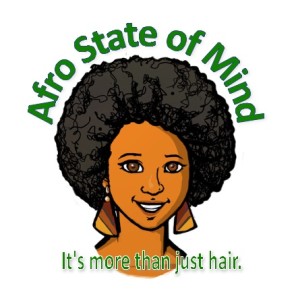
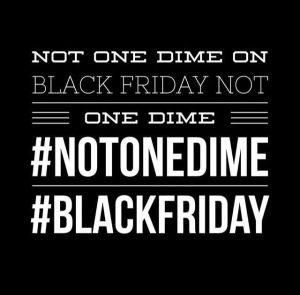
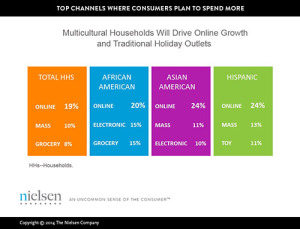
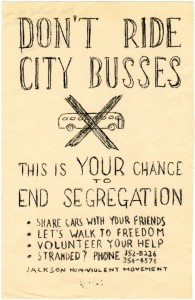
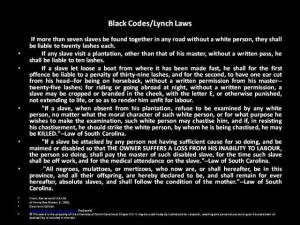
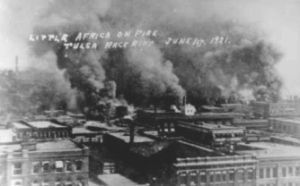
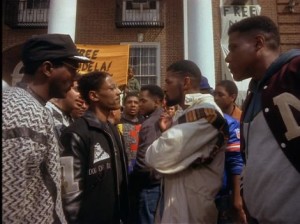
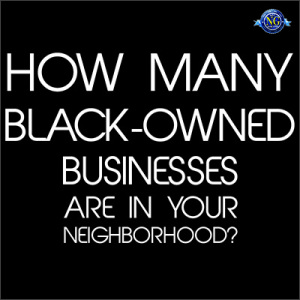
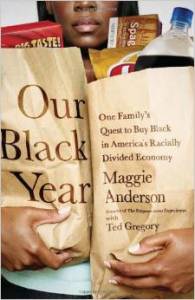
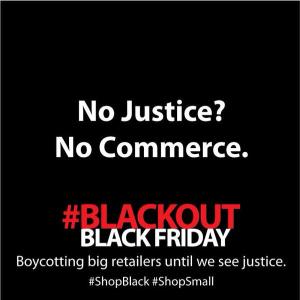




Reverse racism is not the answer. It’s 2014, time to stop the victimization mentality. As a bi-racial woman who has experienced racism from BOTH sides of the coin, it’s just too damn sad that most blacks today don’t stop to realize they are following the party that has played them into the new field negro. And I HOPE they don’t come to help my people, Latinos. I’ve seen what the democrats have done to the AA community. No thanks!
#EducationDefeatsPropaganda
Insightful and excellent article.